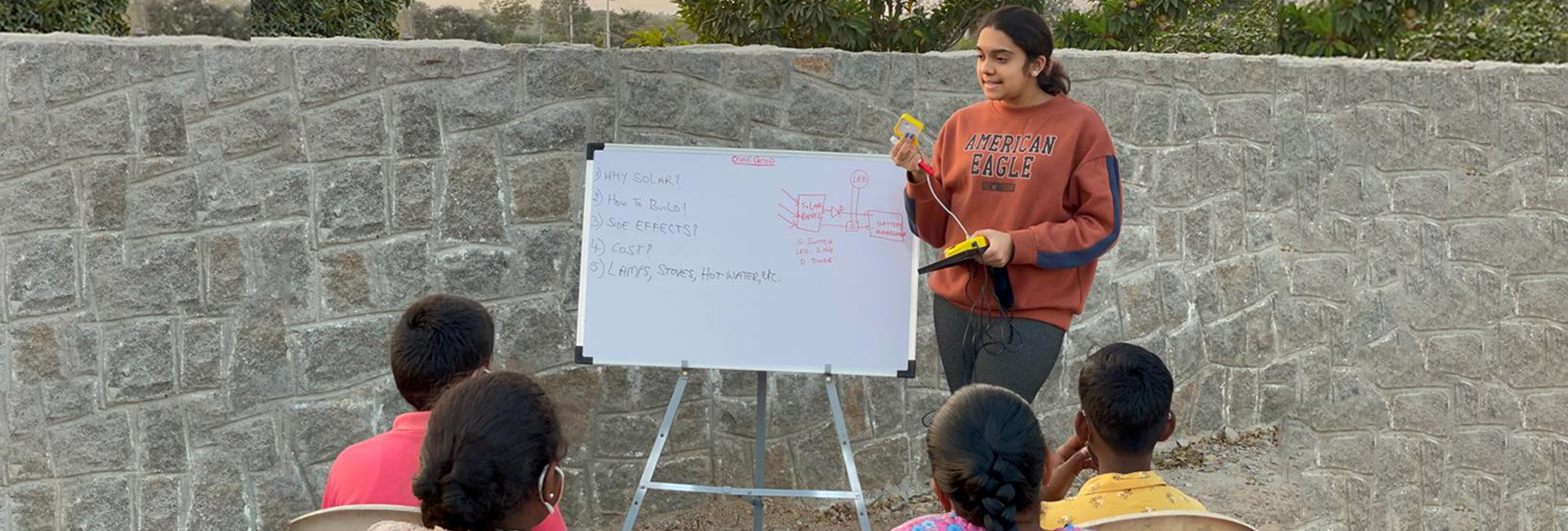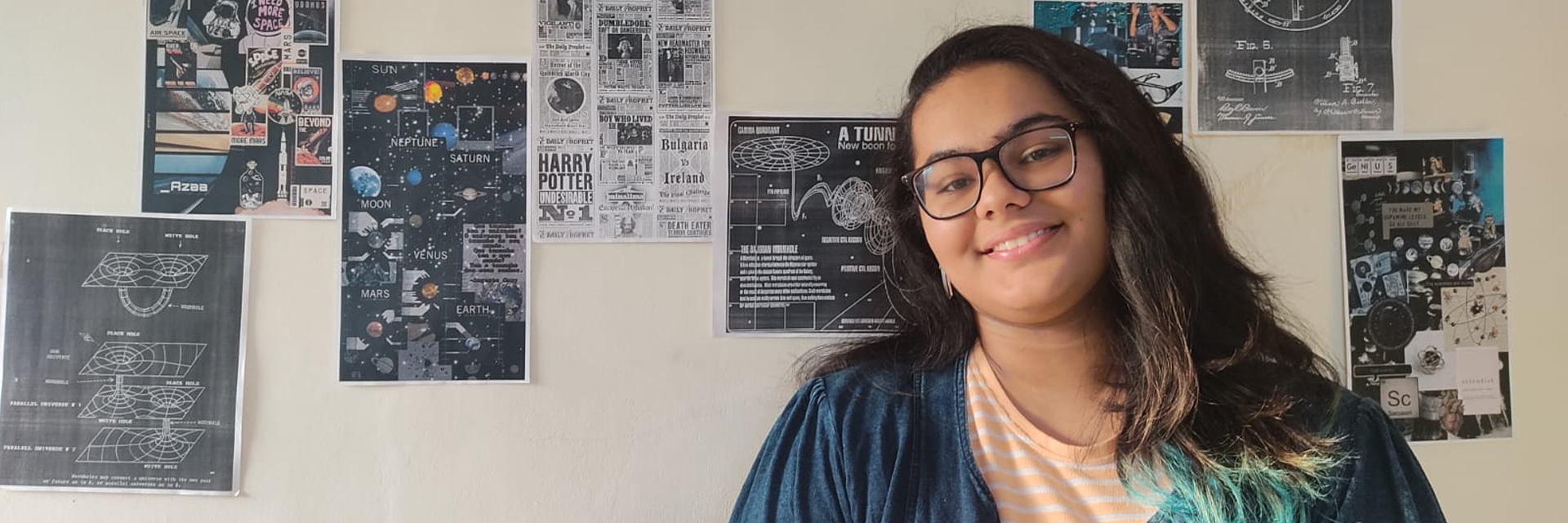(January 17, 2023) India is the third largest producer of electricity in the world, yet energy crisis and power outages are common, especially in rural areas. Kalipeswarapuram in the Krishna district of Andhra Pradesh is no different. When Connecticut-born Anvitha Kollipara visited her paternal grandparents every vacation from the US, the youngster would often notice the disparity in access to basic amenities. But it was the energy crisis that she found to be a burning issue as she would often see people sweating it out in the heat or perishable food getting wasted in the absence of electricity. “But mostly, it was affecting the underprivileged children who were finding it hard to study at night due to frequent power outages. That’s when I decided to make a change and started Project Soledu,” Hyderabad-based Anvitha tells Global Indian.
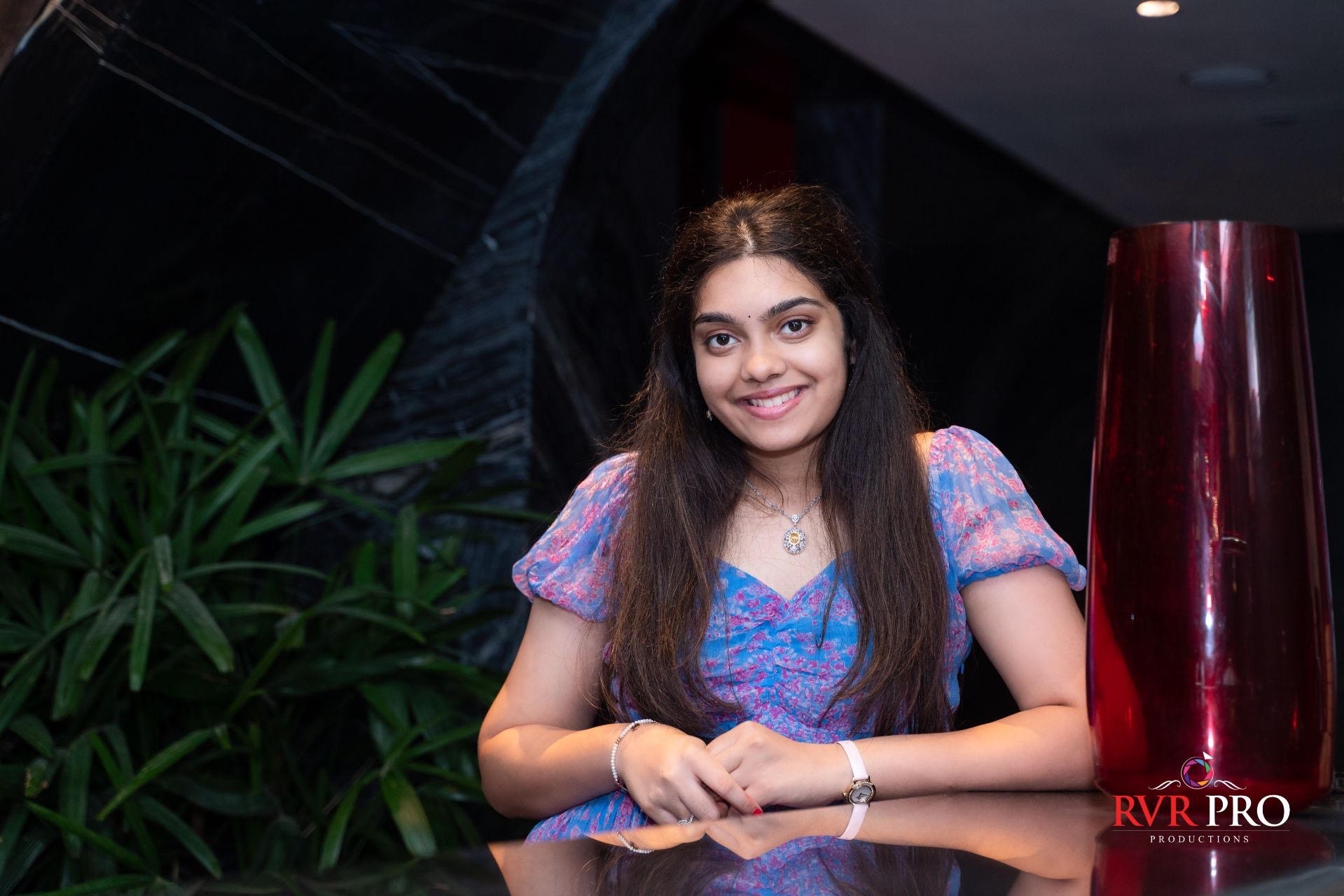
Anvitha Kollipara is the founder of CareGood Foundation
The 16-year-old dug deep to understand the issue and found a possible solution in renewable sources of energy, and that’s when the idea of using solar lamps struck her. “The startling facts stating that 670 million people will remain without electricity by 2023 made me think on my toes. I realised that I won’t be able to solve the problem for everyone, but I can begin by helping the villages in my vicinity,” adds the girl who recently presented Project Soledu at the United Nations. So far, Project Soledu has impacted more than 700 students through 10 workshops in two schools in Telangana and 1 school in Andhra Pradesh.
On a mission to help others
Born and raised in the US, Anvitha was an active part of the Indian-American community, and was always closer to the Indian culture, thanks to her grandparents, whom she visited every year during vacations. At age 12, she decided to move back to India with her family to spend more time with her grandparents, and “to better understand the Indian culture.”
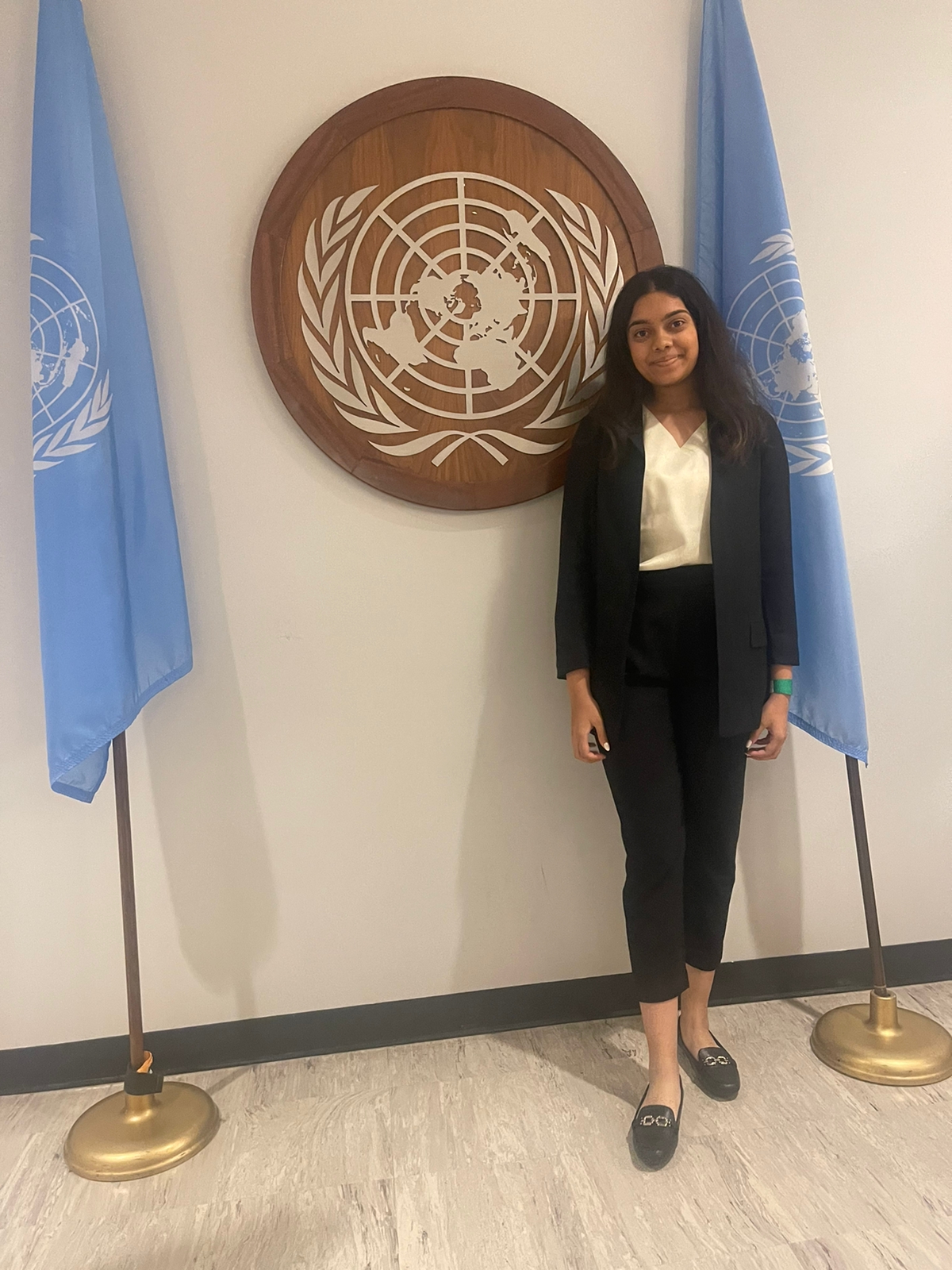

Anvitha Kollipara at the UN headquarters
The annual visits to her grandparents nudged her towards volunteering as she would often spend time with senior citizens at old age homes in the countryside. So, when she read a newspaper article in early 2020 about how Covid had impacted the senior citizens in Italy, leaving them vulnerable, she realised that old age homes were equally at risk in India. This led to the start of the CareGood Foundation in March 2020 where she helped more than 230 senior citizens by providing them with PPE kits and medicines. The non-profit simultaneously gives them a voice as she believes “every person has a story to tell, especially our seniors who have such valuable lessons to teach the next generation.”
Lighting up the lives of unprivileged children
The same year in October, she began Project Soledu to help underprivileged children live active and dignified life. Understanding the first-hand effects of power outages during her stay at her grandparents, she found the solution in a cost-effective and safe alternative – solar power lamps. She interned with the Energy Swaraj Foundation and learnt about solar power and how to make solar power lamps. Through the project, she addresses the issue of a lack of affordable clean energy and raises awareness on using solar power lamps in rural areas with the help of workshops. “It’s a four-step process that we follow. The first is to provide solar-powered lamps to children through national and small-scale workshops. Second, provide a complete solar-powered system to places like schools. Third, help with the maintenance of the lamps and systems, and fourth, conduct workshops for students and show them how to build solar lamps and create awareness on the importance of solar lamps,” reveals the International School of Hyderabad student.
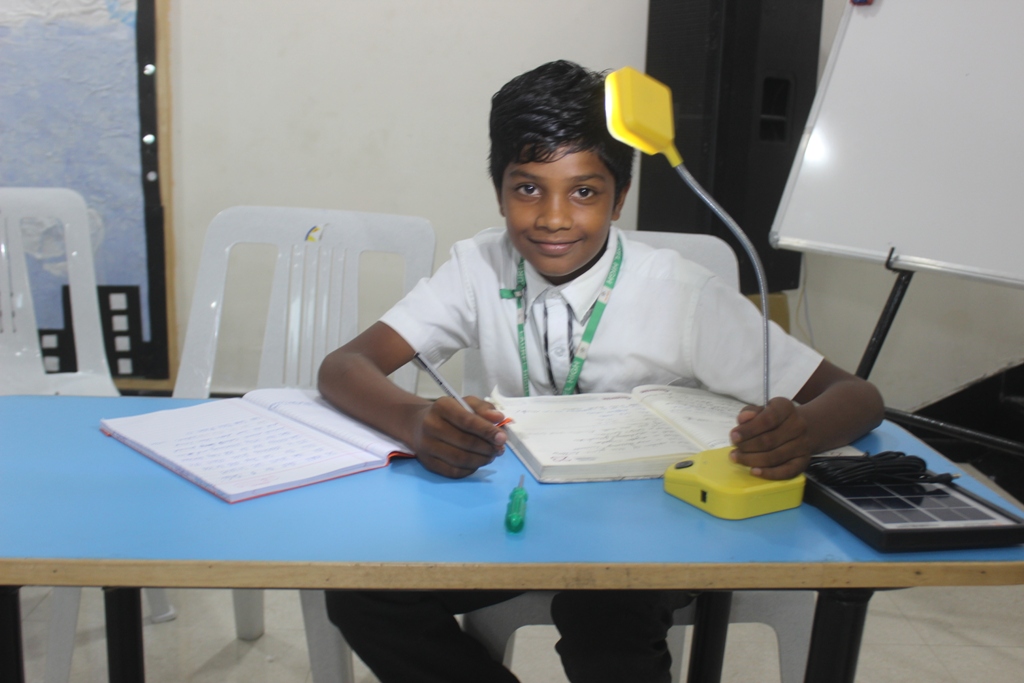

A student in rural India using solar lamp
When she began, she was just 14 and had to face many challenges along the way, with funding being the major hurdle. She began a crowdfunding campaign with Milaap, and would find donations from family members, but knew it wasn’t sustainable in the long run. “That’s when I switched to raising money through exhibitions, stalls, competitions, and CSR (Corporate Social Responsibility),” says the teenager, who works with 50 volunteers who help with the identification of villages and also conduct workshops for children.
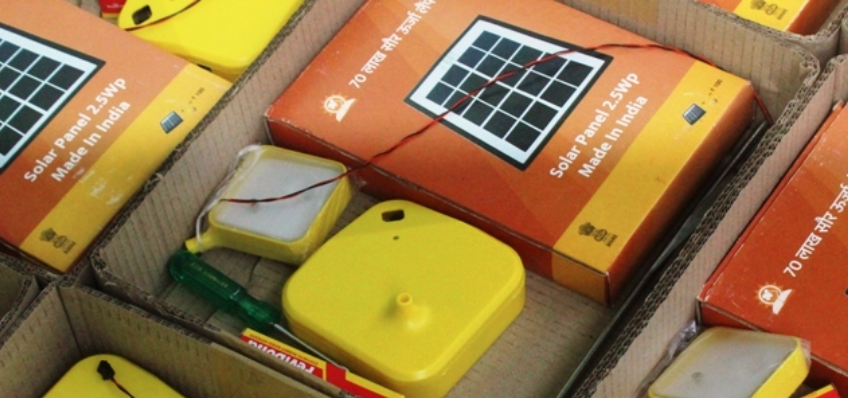

Solar Power Kits provided to kids under Project Soledu
Expansion plans
The last two years have been a learning curve for this Class 11 student who is determined to make an impact with her work. After reaching out to schools in Telangana and Andhra Pradesh, she is now planning a geographical expansion by taking the project to the states of the northeast. “Energy crisis is worse in those states as people go 2-3 days without energy.” She is working with the Sunbird Trust to install solar panels in the northeastern states and plans to launch it in the next couple of months. “Though I started with places that were accessible to me, my ultimate goal is to make an impact all across India.”
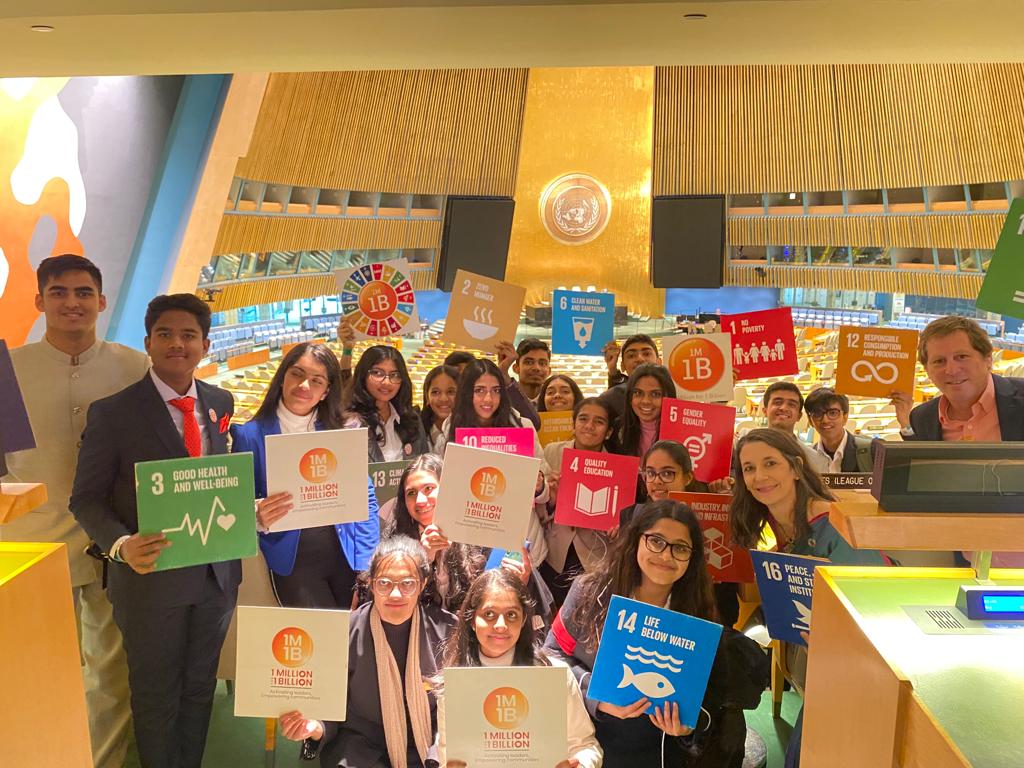

Anvitha Kollipara at 1M1B Activate Impact Summit at the UN headquarters
For the teenager, enrolling in 1M1B’s Future Leaders programme was one of her best decisions as it helped her expand Project Soledu and make impactful collaborations. It allowed her to participate in a 3-day immersion in New York, where she spoke at length about the impact of Project Soledu at the 1M1B Activate Impact Summit at the UN headquarters. Calling it a “surreal experience,” Anvitha says it was a truly special opportunity. “It’s not every day that you meet the people who are best in their field and get a chance to learn from them.”
Anvitha, who is also passionate about Kuchipudi and writing, is keen to make a mark in business and law after she graduates from school. “During past years, I have realised that service work is impactful but it’s only through a change in legislation that long-lasting impact can be made.” The teenager believes that taking a leap of faith is important, even if one is uncertain about the process or the result. “Do what you are passionate about. Go as far as you can. Even if you don’t know the answer, you will figure it out on the way,” she signs off.

